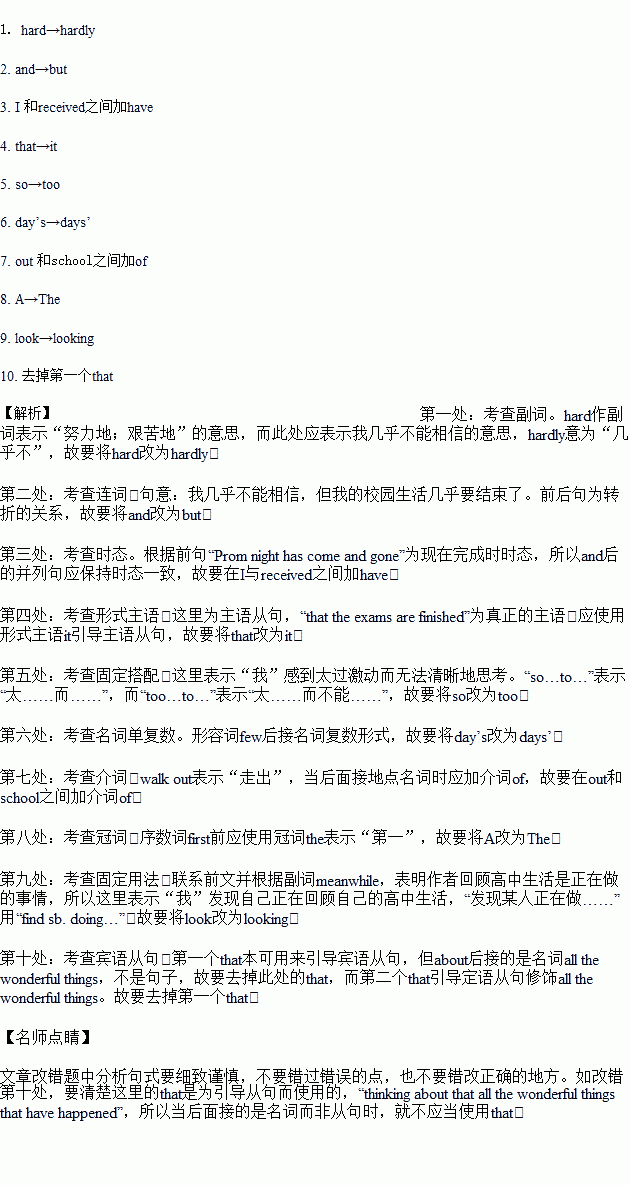题目内容
假定英语课上老师要求同桌之间交换修改句子,请你修改你同桌写的以下句子。每句中有一处错误,每处错误仅涉及一个单词的增加、删除或修改。
增加:在缺词处加一个漏字符号∧,并在其下面写出该加的词。
删除:把多余的词用斜线\划掉。
修改:在错的词下划一横线,并在该词下面写出修改的词。
注意:1. 每处错误及其修改均仅限一词;
2. 只允许修改10处,多者(从第11处起)不计分。
I can hard believe it, and my school life is almost over. Prom night has come and gone, and I received my high school diploma at last. That is a good thing that the exams are finished. I feel so excited to think clearly! It seems strange to think that in a few day’s time I’ll be walking out school gates forever. A first thing I’m going to do is to take a long vacation! Meanwhile, I find myself look back at my senior year, and thinking about that all the wonderful things that have happened.
练习册系列答案
 阅读快车系列答案
阅读快车系列答案
相关题目

